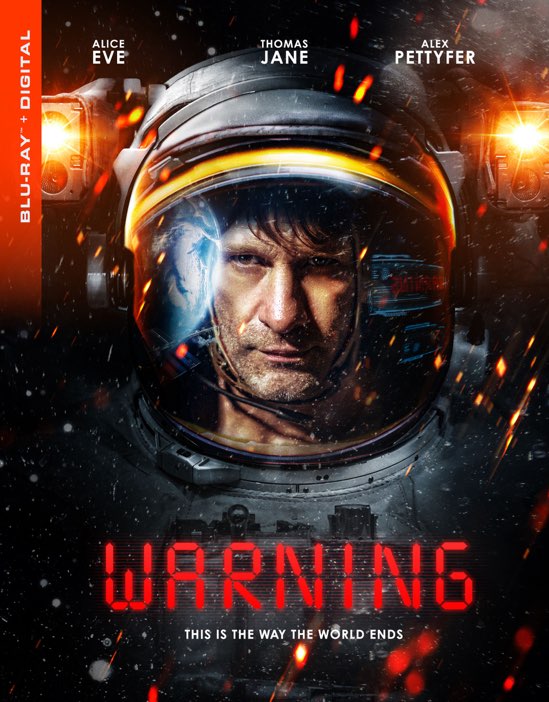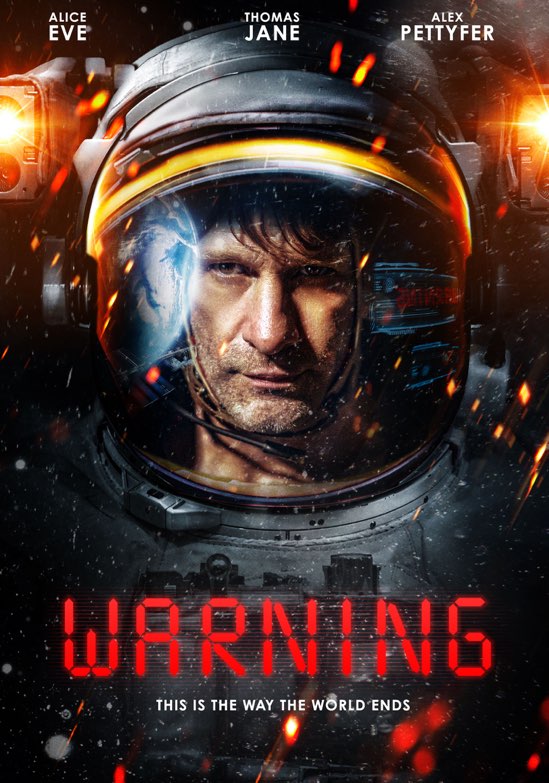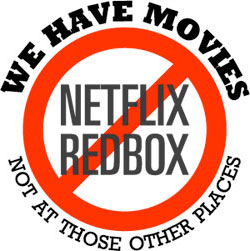Review: 'Warning' is an ambitious cautionary tale
Posted Tuesday, October 26, 2021 at 1:34 PM Central
Last updated Tuesday, October 26, 2021 at 1:35 PM Central
by John Couture

Usually, filmmakers don't hammer you over the head with their message. But with Warning, it's all there in the title.
Writer-director Agata Alexander makes her feature-length debut with Warning and she certainly didn't waste frames with navel-gazing. Instead, she's packed everything and the kitchen sink into the film's tight 86 minute run time. It's like she's taken a whole season's worth of Black Mirror and scaled it down to serving-size samples.
I make the Black Mirror reference because surely every review will mention it as the vignettes that make up the larger story really do feel like rejected concepts for the Netflix series. It's not that they fall short of merit, but it seems that they could have expanded and explored individually with more time for introspection.
As it stands, the vignettes are a bit uneven with some being very interesting while others probably should have ended up on the cutting room floor. But, what is clearly apparent is that Agata Alexander is a truly gifted filmmaker with a bright future ahead of her, and I, for one, can't wait to see where her talent takes her next.
Set in the not too distant future, this intense sci-fi thriller explores the repercussions that mankind faces when omniscient technology becomes a substitute for human contact. But life begins to unravel when a global storm causes electronics to go haywire, leading to terrifying, deadly consequences.
While the idea of philosophical sci-fi explorations isn't new in either filmed entertainment or in literature, the choice to present various short stories without directly connecting them to a larger theme is a bold choice. Usually, these types of doomsday films have threads that weave together for a cohesive structure, but Alexander is defiant in her choice to keep them separate.
Instead, they are loosely tied together by the existential crisis of man's reliance on technology. If there's one connective tissue throughout the film, it's Thomas Jane's astronaut/satellite repairman character who is jettisoned in the opening moments in the film and left to ponder his existence as he floats through space in an unwinnable race against his oxygen supply.
He knows that he's going to die, something that we all must face in our own lives, but his death is imminent. This unique set of circumstances gives him a certain perspective that doesn't really translate to others as they come to learn that their lives have potentially also been cut short.
The distinct antagonist for these tales is technology and our reliance upon it. Set seven years in the future (where Covid-28 is a thing - darn!), it's pretty apparent that the technology has continued to expand to a point where "immortality" is possible and older people with money can take a young woman's body for a 48-hour spin.
These concepts seem foreign to us now, and yet, they really aren't too far beyond the veil of possibility. The way that technology has progressed at such a rapid rate over the last hundred years, it's not inconceivable that all of these advancements could be in our immediate future.
And some seem like they are already here.
Case in point, Alice Eve's portrayal of a young woman who is lost with her God 2.0 prayer box that is basically an app-driven device that logs her sins and gives her daily affirmations. When the electrical storm that set off the film's action affects her God 2.0 box, she's left unable to pray and function, despite being told to do it "manually."
In this not-so-dystopian future, we have become so reliant upon technology that surely the events of WALL•E can't be too far off. And yet, even in the face of a cataclysmic event, humans can't be bothered to put down their devices and simply enjoy the world around them.
Yep, I've been guilty of this myself. Just ask my wife.
And there are several more stories running concurrently with the countdown to the end. But, they resist overlap like a fat guy resists vegetables (again, guilty as charged). But, that's OK. The overriding story is the human condition and our continued reliance on technology.
This reliance upon technology will be our downfall, even if we are snuffed out by an asteroid. The ultimate irony? Thomas Jane's life might have been spared, at least for a little bit, had his company invested in an android to do his routine maintenance, but there was no budget for an android.
And that's the ultimate bastardization of technology. In the sci-fi tales of old, technology was supposed to be an asset for humanity. It was supposed to help us in our everyday tasks and take over those dangerous jobs and lead to fewer accidents and death.
Instead, we have leaned into the more vain applications of technology. Entertainment. Life extension. So, Thomas Jane's joke at the end resonates more than ever, but will anyone stick around long enough to get it?
Warning is an ambitious debut from a talented filmmaker whose best work is ahead of her. It's far from perfect, but there are many positive things to like about it. If you're looking for a fast-paced sci-fi film that will challenge you to confront your obsession with technology, then Warning is for you.
Granted, the audience for this type of movie might be on the small side, but I'm betting that they will enjoy it. Warning is now available on Blu-ray and DVD.







